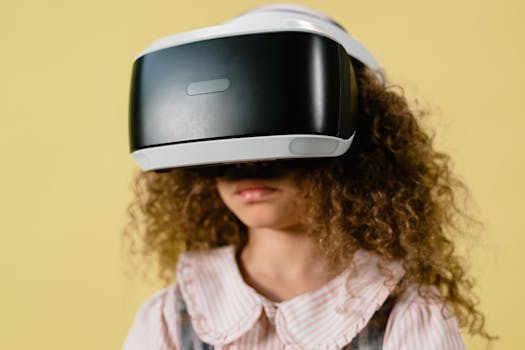
The Future of Education: What 2025 Holds
Introduction to the Future of Education
The Future of Education: What 2025 Holds. The world of education is on the cusp of a revolution, driven by technological advancements, shifting societal needs, and an evolving understanding of how we learn. As we look to the future, it’s clear that the education sector will undergo significant transformations in the coming years. In this article, we’ll explore the trends, innovations, and predictions that will shape the future of education in 2025 and beyond.
Personalized Learning: The Key to Unlocking Student Potential
One of the most significant trends in the future of education is personalized learning. With the help of AI-powered adaptive learning systems, students will be able to learn at their own pace, with content tailored to their individual needs and abilities. This approach will enable teachers to focus on what they do best – providing guidance, support, and mentorship – while technology handles the more administrative tasks.
Personalized learning will also be driven by the use of data analytics, which will help educators identify areas where students need extra support, and provide targeted interventions to help them get back on track. This data-driven approach will enable educators to make informed decisions about curriculum design, teaching methods, and resource allocation.
Virtual and Augmented Reality: Revolutionizing the Learning Experience
Virtual and augmented reality technologies are set to revolutionize the learning experience, providing students with immersive, interactive, and engaging experiences that simulate real-world environments. From virtual field trips to interactive simulations, these technologies will enable students to explore complex concepts in a more intuitive and memorable way.
Virtual and augmented reality will also enable students to develop skills that are difficult to teach in a traditional classroom setting, such as empathy, communication, and problem-solving. By providing students with a safe and controlled environment to practice these skills, educators can help them develop the confidence and competence they need to succeed in an increasingly complex and interconnected world.
Online Learning: The Democratization of Education
Online learning has been gaining traction in recent years, and it’s clear that it will continue to play a major role in the future of education. With the rise of MOOCs (Massive Open Online Courses), online degree programs, and other digital learning platforms, students will have access to a wider range of educational opportunities than ever before.
Online learning will also enable students to learn from anywhere, at any time, providing them with the flexibility and autonomy they need to balance their educational goals with other aspects of their lives. This will be particularly beneficial for students who are unable to attend traditional brick-and-mortar institutions, such as those living in remote or underserved areas.
Artificial Intelligence: The Future of Education
Artificial intelligence is set to play a major role in the future of education, from automated grading and feedback systems to intelligent tutoring systems that provide personalized support to students. AI-powered systems will also enable educators to identify areas where students need extra support, and provide targeted interventions to help them get back on track.
AI will also enable educators to develop more effective teaching methods, by analyzing data on student learning outcomes and providing insights into what works best. This will enable educators to refine their teaching practices, and develop more effective strategies for supporting student learning and achievement.
Conclusion: The Future of Education is Bright
In conclusion, the future of education is bright, with a wide range of trends, innovations, and predictions that will shape the learning experience in 2025 and beyond. From personalized learning and virtual reality to online learning and artificial intelligence, these technologies will provide students with the skills, knowledge, and competencies they need to succeed in an increasingly complex and interconnected world.






